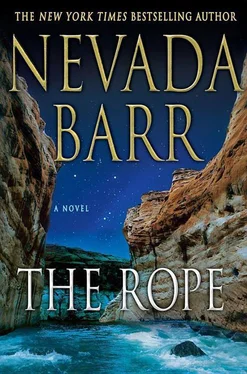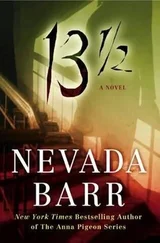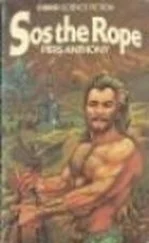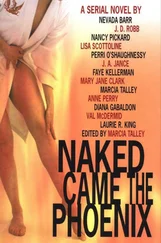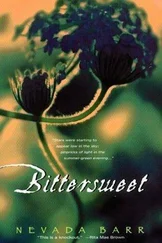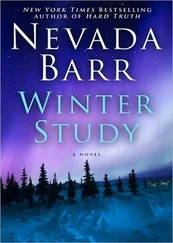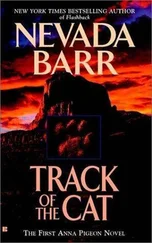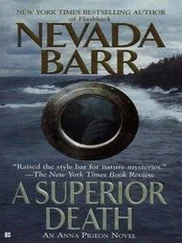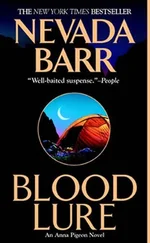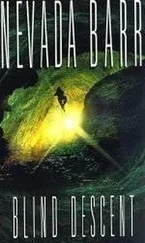“Living, knowing the monster is out there, might not be better than dead,” Anna said.
“Don’t be such a melodramatic little ass,” Molly said. “There are always monsters out there. Many of them in high places and respected professions. Do you think I just listen to bored housewives and neurotic rich people forty hours a week? I see monsters every day: men who batter wives, women who are cruel to their children, grown-up little boys who were used by fathers and uncles and cousins, grown-up little girls who were raped by their dentist or pastor or Daddy’s best friend or Daddy himself. On Fridays, when I do pro bono work at Pelican Bay, I meet the batterers and child abusers and murderers. I know they are the tip of the iceberg, the small percentage that get caught and their lawyers don’t get them a deal and the judge doesn’t throw out their case on a technicality and the victim doesn’t withdraw her accusation and the witnesses actually show up in court.
“Of course we’re scared sometimes. Of course we sometimes feel helpless. Of course we all live knowing the monster is out there.
“You are not a monster hunter, Anna.” Molly ran down, the heat leaking out of her tirade. “Leave this to the cops,” she finished. “You are not John Wayne. You are just a stage manager.”
Anna clenched the fingers of her left hand, making the tendons in her shoulder ache.
“John Wayne wasn’t John Wayne,” she said. “He was just an actor.”
By gray-green fingernails dusk hung on to the edge of a star-studded sky. Chain-smoking and thinking and trying not to think, Jenny sat with her back against the wall of the duplex, legs stretched out on the picnic table, waiting for Anna.
Party boaters had defiled the grotto. She and Anna would need to sample the water there again, see if it was fit for human visitation. There was the beautiful little beach in Gunsight Bay, a prime spot for toilet paper blooms and graffiti, that she hadn’t visited in a while. Interpretive opportunities would abound in Gunsight. It would be a good place to get Anna started on the higher education aspects of her job.
That was if Anna didn’t bolt. Jenny wouldn’t blame her if she did pack up her toiletries and head east on the first train, plane, or bus. Jenny hoped Anna would stay, figured she would run, and, in honesty, thought she probably should put as many miles between herself and the “jar,” as she called it, as possible. Ms. Pigeon was incredibly ignorant of reality not created on stages in the Big Apple.
Too many questions about her abduction and imprisonment remained unanswered for her to feel safe anywhere near Lake Powell. Regis was not in jail. Anna wasn’t pressing charges. Eyewitness to her own attack, Anna knew he had not been one of the three boys who dumped her in the hole. For tonight, Steve had asked Regis to remain in Wahweap so Andrew could take his statement at headquarters. Tomorrow night, he would be back at the Rope, sitting a few yards from Anna’s bedroom window drinking beer.
Regis’s intervention had rescued Anna from a very real hell. Anna didn’t dispute that, but Jenny saw how she’d watched him, chin up, eyes hooded. Jenny’d seen an owlet looking at a snake that way once, waiting for it to strike. Come to think of it, Jenny had seen Bethy Candor looking at Anna that way. That her husband had left her bed to find another woman wasn’t lost on Bethy. Before Anna disappeared, Regis’s attentions to Anna hadn’t been lost on anybody, with the exception, perhaps, of Anna herself.
The Rope was no longer going to enjoy the easy camaraderie it once had.
At the far end of the housing area, soundless as an apparition, Anna appeared.
Lost in thoughts of her, for an instant Jenny believed she had conjured her. Anna ghosted between the two duplexes forming the southwest corner of the square, walking as quietly as cats were supposed to. “Hey, Anna,” Jenny said lest she startle her. “It’s me.”
“I saw you,” Anna replied. She came down the concrete walk and sat on the bench, leaning her back against the table’s edge, facing away from Jenny.
Jenny wondered if it was a rebuff. No, she decided, if Anna didn’t want to be with her, she would have gone straight inside. “Did you get hold of your sister?” she asked.
“She thinks I should come back to New York.”
“You probably should,” Jenny said, proud of herself for putting Anna’s well-being before her desire for her company.
“Yeah,” Anna said. Then, “Do you know who took my things? My uniforms, clothes, all that?”
“Not a clue,” Jenny said, “but that’s why we didn’t do a search. It looked like you’d cleared out.”
“Do you think that’s why they were taken? So nobody would come looking for me?”
“That’s what I think.” Jenny put added stress on the I . Steve Gluck and the chief ranger didn’t buy that there was that much plot afoot. Kay’s corpse and the mishmash of tracks on the plateau convinced them that there were three attackers, as Anna had said. They accepted her statement that they were college-age boys. These facts made sense. That three criminal opportunists were connected to the disappearance of Anna’s belongings, miles away in distance and elevation, did not. Andrew Madden, at least, clung to the hope that Anna had cleared out her things, then coincidentally—or for personal reasons—met up with the men who’d killed Kay.
Jim Levitt—it was he who had carried the law enforcement gossip from Andrew’s office to Jenny’s ears—said there was some disagreement between Andrew and Steve as to whether Anna had been visited in the hole or merely been dumped there to die. The canteen she’d insisted contained drugged water was empty, and there was no evidence of any waxed paper, pudding containers, or paper bags to back up her story about the food.
Anna caught the emphasis on I. “You believe the monster took my things. Who doesn’t?”
Jenny told her part of what Jim had said. “They aren’t discounting the possibility that you knew Kay and went to meet her that day.”
Anna was silent so long Jenny worried she’d dropped back into that fugue state she’d suffered when Regis popped out of her own personal rabbit hole and began berating her for skunking him.
“Want a beer?” Jenny asked helpfully.
Anna didn’t reply. Jenny stubbed out her umpteenth cigarette, scooted off the table, and went inside. In less than three minutes she was back on the porch, two bottles of Tecate hanging by their necks from the fingers of her left hand. Buddy was tucked into the crook of her right arm.
“Medicinal restoratives,” she said as she sat beside Anna on the bench and put the bottles between them.
As Jenny settled the sleepy skunk kit on Anna’s lap, the back of her hand touched the other woman’s thigh. Anna flinched as if she’d been poked with a hot iron.
Jenny didn’t know if it was her touch, the fact of being touched, or the cuts. She didn’t ask, just inched farther away on the bench as she pulled her hands back, in case Anna needed more space.
“Then they think I also knew the boys that were getting ready to rape Kay?”
Jenny didn’t have ready words to answer this question. According to Jim it had been posited that either both Anna and Kay knew the boys and a day of fun had gone bad, or possibly only Anna knew the boys and they had turned on her when Kay was killed. As Jenny was searching for a way to say it that would not destroy the hearer, Ms. Pigeon figured it out.
“They think I killed Kay and made up the stuff about boys to cover up the murder?” The outrage in her voice was a balm to Jenny’s ears. In anger was strength. She realized she’d been bracing herself for hopeless despair.
Читать дальше
